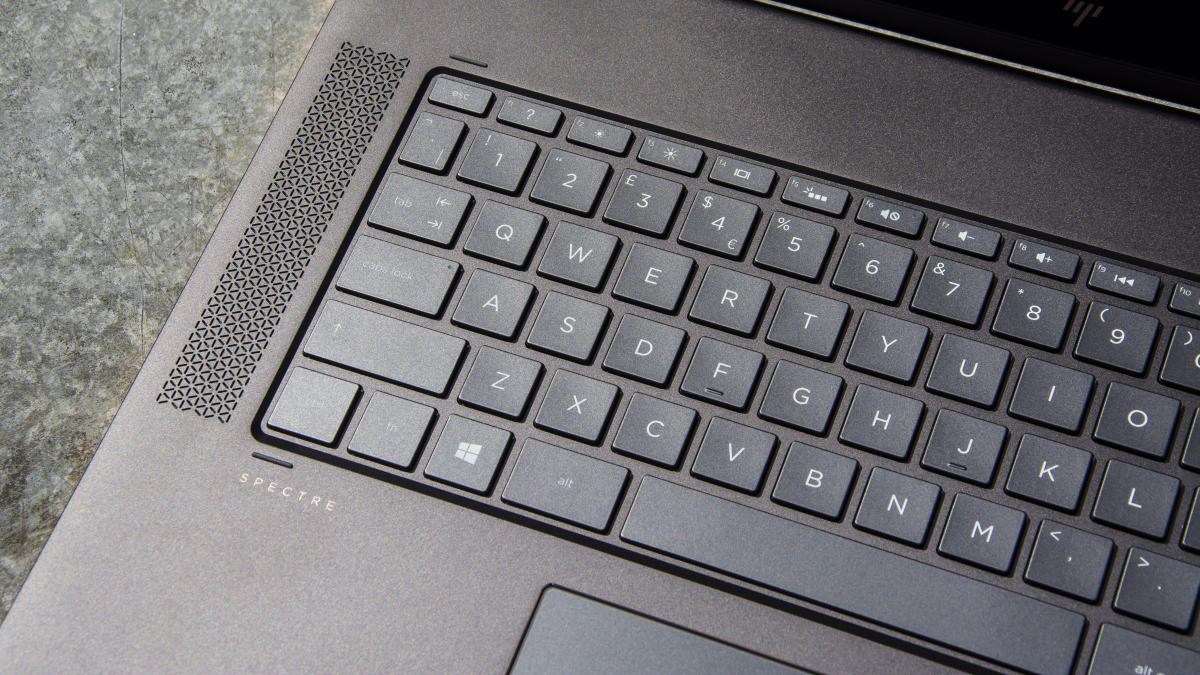Keylogger discovered in hundreds of HP laptops
HP patches touchpad driver, but hackers could exploit flaw to spy on users

More than 450 HP laptop models have a keylogger hidden away in a driver, forcing HP to issue patches for the affected devices.
The keylogger, found in Synaptics' touchpad software, is disabled by default, but hackers could potentially enable it if they had access to a computer by elevating user privileges, said Michael Myng, the researcher who discovered the flaw.
Commericial workstations, consumer laptops and other HP products contain the flaw, including Spectre devices, Pavilion devices, ZBooks and others.
"A potential security vulnerability has been identified with certain versions of Synaptics touchpad drivers that impacts all Synaptics OEM partners," an HP statement on its security bulletin read.
"A party would need administrative privileges in order to take advantage of the vulnerability. Neither Synaptics nor HP has access to customer data as a result of this issue."
Myng discovered the issue when trying to control the backlighting of an HP keyboard, noticing a format string for a keylogger when looking through the keyboard driver. Unable to find an HP laptop to test his findings, he contacted HP directly.
"They replied terrificly [sic] fast, confirmed the presence of the keylogger (which actually was a debug trace) and released an update that removes the trace," he said.
Get the ITPro daily newsletter
Sign up today and you will receive a free copy of our Future Focus 2025 report - the leading guidance on AI, cybersecurity and other IT challenges as per 700+ senior executives
HP claims the keylogger in Synaptics' touchpad was created to debug errors. If activated however, a hacker could track every letter a laptop user typed.
Worth updating with a quick line - they say sorry and working on updating drivers with a patch, don't give people admin access in the meantime
A Synaptics spokesperson apologised for the error and advised users to change their admin settings to prevent anyone taking advantage of the flaw before it's fixed.
"Synaptics is working closely with our PC customers to update drivers and to deploy them to address security concerns," they said. "Synaptics also recommends using best practices by restricting admin access to any system as anyone with this level of access can potentially install malware or other anti-privacy software irrespective of whether the debug tool is on or off."
They added: "In our new normal of heightened concern for security and privacy, Synaptics would like to apologise for any concerns that our debug tool may have raised. We have a path to immediately address this issue and other security concerns should they arise."
A keylogger was also discovered in Synaptics subsidiary Conexant's audio drivers, also installed in HP laptops, back in May.
An HP spokesperson said: "HP was advised of an issue that exists with Synaptics' touchpad drivers that impacts all Synaptics OEM partners. HP uses Synaptics' touchpads in some of its mobile PCs and has worked with Synaptics to provide fixes to their error for impacted HP systems, available in the security bulletin on HP.com. HP has no access to customer data as a result of this issue."
Picture: HP Spectre x360/Credit: IT Pro
-
 Bigger salaries, more burnout: Is the CISO role in crisis?
Bigger salaries, more burnout: Is the CISO role in crisis?In-depth CISOs are more stressed than ever before – but why is this and what can be done?
By Kate O'Flaherty Published
-
 Cheap cyber crime kits can be bought on the dark web for less than $25
Cheap cyber crime kits can be bought on the dark web for less than $25News Research from NordVPN shows phishing kits are now widely available on the dark web and via messaging apps like Telegram, and are often selling for less than $25.
By Emma Woollacott Published
-
 Hackers are targeting Ivanti VPN users again – here’s what you need to know
Hackers are targeting Ivanti VPN users again – here’s what you need to knowNews Ivanti has re-patched a security flaw in its Connect Secure VPN appliances that's been exploited by a China-linked espionage group since at least the middle of March.
By Emma Woollacott Published
-
 Forget MFA fatigue, attackers are exploiting ‘click tolerance’ to trick users into infecting themselves with malware
Forget MFA fatigue, attackers are exploiting ‘click tolerance’ to trick users into infecting themselves with malwareNews Threat actors are exploiting users’ familiarity with verification tests to trick them into loading malware onto their systems, new research has warned.
By Solomon Klappholz Published
-
 Broadcom issues urgent alert over three VMware zero-days
Broadcom issues urgent alert over three VMware zero-daysNews The firm says it has information to suggest all three are being exploited in the wild
By Solomon Klappholz Published
-
 Nakivo backup flaw still present on some systems months after firms’ ‘silent patch’, researchers claim
Nakivo backup flaw still present on some systems months after firms’ ‘silent patch’, researchers claimNews Over 200 vulnerable Nakivo backup instances have been identified months after the firm silently patched a security flaw.
By Solomon Klappholz Published
-
 Everything you need to know about the Microsoft Power Pages vulnerability
Everything you need to know about the Microsoft Power Pages vulnerabilityNews A severe Microsoft Power Pages vulnerability has been fixed after cyber criminals were found to have been exploiting unpatched systems in the wild.
By Solomon Klappholz Published
-
 Vulnerability management complexity is leaving enterprises at serious risk
Vulnerability management complexity is leaving enterprises at serious riskNews Fragmented data and siloed processes mean remediation is taking too long
By Emma Woollacott Published
-
 A critical Ivanti flaw is being exploited in the wild – here’s what you need to know
A critical Ivanti flaw is being exploited in the wild – here’s what you need to knowNews Cyber criminals are actively exploiting a critical RCE flaw affecting Ivanti Connect Secure appliances
By Solomon Klappholz Published
-
 "Thinly spread": Questions raised over UK government’s latest cyber funding scheme
"Thinly spread": Questions raised over UK government’s latest cyber funding schemeThe funding will go towards bolstering cyber skills, though some industry experts have questioned the size of the price tag
By George Fitzmaurice Published